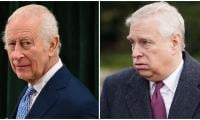The rising Khan
“Politics and diapers should be changed frequently and all for the same reason”, said the famous Por
By Babar Sattar
October 22, 2011
“Politics and diapers should be changed frequently and all for the same reason”, said the famous Portuguese writer José Maria de Eça de Queiroz. Accepted, politics is a dirty business the world over. But must it get so revolting that people start losing faith in the viability of democracy as a desirable form of government?
Leaving the Constitution aside for a second, the primary arguments in favour of supporting democracy and against praetorian rule are threefold: khakis have no solution to Pakistan’s myriad problems; they have already usurped power multiple times and have become part of our problem as opposed to the solution; and politicians might be corrupt and evil, but the continuity of our representative process will be self-cleansing and will afford Pakistanis the ability to find and nurture decent leadership capable of steering the country out of troubled waters.
The support for democracy in Pakistan is waning because people are losing faith in the electoral system as a mechanism for change. The growing despondency is not being caused by the burden of our national woes alone, but by the pitch-black tunnel we see ahead of us. The country, the federal and provincial governments, parliament and the national assemblies all seem to be under the stranglehold of heads of autocratic parties that have been major power brokers over the last few decades and have contributed their share in pushing Pakistan to the edge of the precipice.
If all that the electoral process can do is either maintain the status quo or redistribute power in varied proportions amongst the same discredited players, should we not brace up for a long dark night with no stars on the horizon? If democracy continues to be defined by this garbage-in-garbage-out politics, how will continuity of the process help?
And this is where Imran Khan offers a glimmer of hope. He is threatening to break the high barriers to entry surrounding the political arena and crash the party by virtue of his celebrity, a career of distinction as a sports hero and a philanthropist, swelling support within the youth of Pakistan, untainted integrity, ability to speak unhesitatingly with candour, his dogged faith in his own ability to foster change, and his perseverance in politics (despite being dismissed by pundits as a viable alternative to the mainstream parties). Who knows if Imran Khan will do well in the coming elections or ever become the prime minister of Pakistan. This comment is not about what is likely to happen, but what ought to happen to strengthen our faith in democracy, plurality and change, and reintroduce ethics to public life.
Let’s first address what is not endearing about Imran Khan’s politics: the manner in which he has positioned himself right of the centre in the company of good-for-nothing religious parties; the structure of his party that can’t boast of reputable second-tier leadership, transparent decision-making processes and internal democratic mechanism that would prevent it from evolving into another autocratic party masquerading as a champion of democracy; and his inclination toward populist causes. The left and the right are no longer the watertight compartments they used to be half a century ago. If the PTI stands at the centre of the ideological spectrum, it can form alliances with parties, both on the right and the left, on an issue-to-issue basis.
Out of ideas, the MQM is accusing political opponents of blasphemy. The ANP has lost its ideology and its soul. And about the PPP (that did not even exhibit the courage to acknowledge and celebrate the court ruling meting out justice to the killer of its governor in Punjab) the less said the better. The erstwhile centre-left and the left in Pakistani politics stands abandoned today. To court some of this vote bank, Imran need not abandon religion and become the flag bearer of secularism. But he must address whether Pakistan ought to be a security state or a welfare state, how individual rights are to be protected against the excesses of the state as well as tyranny of obscurantist forces within the society, and what will be the outline of his economic programme and governance system that will uphold the citizens’ right to life, liberty, dignity and sustenance.
Notwithstanding these limitations and some of his seemingly simplistic solutions to the complex and multi-dimensional security challenges confronting the Pakistani state and society, the success of Imran would bode well for our democracy, representative politics and the future of our polity for at least four reasons. One, Imran continues to remind us of the necessity to retain minimum standards of ethics in public life. He does so not in a nauseating religio-moral fashion, but by highlighting the need for transparency and accountability in public life backed by institutional structures and conflict of interest laws. The brand of democracy we are suffering seems to be strangulating the idea that public officials are trustees accountable to ordinary people for the manner in which they exercise state authority and manage public resources.
Two, Imran is relying on his conviction that ordinary people are the lords and masters of Pakistan, and once they rally behind change there is no force powerful enough to frustrate their resolve. This is a huge normative contribution. It is this sense of empowerment (inherent in the concept of democracy, which makes it the most attractive system of governance around the world even if not the most efficient) that the people of Pakistan have been robbed of. The attitude of our politicos is defeatist and our so-called intellectuals keep reminding us that we suffer from a design fault and have inherited a slavish mentality that will always prevent us from taking charge of our fate and fortune and there is little we can do about it. Thus, Imran’s faith in the choice and ability of ordinary folk to do the right thing is a breath of fresh air.
Three, he is inviting ordinary people to join him and transform the contours of electoral politics in Pakistan. Imran is being called naïve because he is refusing to play the game in the warped manner it has been played over the last 60 years. But he is right. If the rules of the game remain compromised and corrupt, how will the product be kosher? If you win elections on the basis of your network of patronage and personal wealth, will you not try to strengthen such network and recoup your expenses for the next electoral cycle when in power? The alternative is to run on issues and develop the party as the main source of campaign finance. Only such politics offers the possibility of making the electoral process an agent of change.
And finally, Imran Khan’s presence in the political arena affords people the opportunity to give their vote to someone who also has their respect. It is the growing disconnect between our individual morality and our public morality that is largely responsible for the declining ethical standards in our society. We won’t trust someone with our personal money or the fortune of our kids, but we are willing to give them our vote and hand over the responsibility of determining our collective future. In being realistic, the coming election will not make Imran Khan a contender for Pakistan’s top executive office. But with a sizable presence in parliament, he will be a welcome addition to the political landscape.
As Tocqueville famously said, “in every democracy, people get the government they deserve.” We must start treating our votes as an investment in our own future. So long as we continue to make expedient and irresponsible choices at the polls, we’ll have to suffer the lot that we have got.
Email: sattar@post.harvard.edu
Leaving the Constitution aside for a second, the primary arguments in favour of supporting democracy and against praetorian rule are threefold: khakis have no solution to Pakistan’s myriad problems; they have already usurped power multiple times and have become part of our problem as opposed to the solution; and politicians might be corrupt and evil, but the continuity of our representative process will be self-cleansing and will afford Pakistanis the ability to find and nurture decent leadership capable of steering the country out of troubled waters.
The support for democracy in Pakistan is waning because people are losing faith in the electoral system as a mechanism for change. The growing despondency is not being caused by the burden of our national woes alone, but by the pitch-black tunnel we see ahead of us. The country, the federal and provincial governments, parliament and the national assemblies all seem to be under the stranglehold of heads of autocratic parties that have been major power brokers over the last few decades and have contributed their share in pushing Pakistan to the edge of the precipice.
If all that the electoral process can do is either maintain the status quo or redistribute power in varied proportions amongst the same discredited players, should we not brace up for a long dark night with no stars on the horizon? If democracy continues to be defined by this garbage-in-garbage-out politics, how will continuity of the process help?
And this is where Imran Khan offers a glimmer of hope. He is threatening to break the high barriers to entry surrounding the political arena and crash the party by virtue of his celebrity, a career of distinction as a sports hero and a philanthropist, swelling support within the youth of Pakistan, untainted integrity, ability to speak unhesitatingly with candour, his dogged faith in his own ability to foster change, and his perseverance in politics (despite being dismissed by pundits as a viable alternative to the mainstream parties). Who knows if Imran Khan will do well in the coming elections or ever become the prime minister of Pakistan. This comment is not about what is likely to happen, but what ought to happen to strengthen our faith in democracy, plurality and change, and reintroduce ethics to public life.
Let’s first address what is not endearing about Imran Khan’s politics: the manner in which he has positioned himself right of the centre in the company of good-for-nothing religious parties; the structure of his party that can’t boast of reputable second-tier leadership, transparent decision-making processes and internal democratic mechanism that would prevent it from evolving into another autocratic party masquerading as a champion of democracy; and his inclination toward populist causes. The left and the right are no longer the watertight compartments they used to be half a century ago. If the PTI stands at the centre of the ideological spectrum, it can form alliances with parties, both on the right and the left, on an issue-to-issue basis.
Out of ideas, the MQM is accusing political opponents of blasphemy. The ANP has lost its ideology and its soul. And about the PPP (that did not even exhibit the courage to acknowledge and celebrate the court ruling meting out justice to the killer of its governor in Punjab) the less said the better. The erstwhile centre-left and the left in Pakistani politics stands abandoned today. To court some of this vote bank, Imran need not abandon religion and become the flag bearer of secularism. But he must address whether Pakistan ought to be a security state or a welfare state, how individual rights are to be protected against the excesses of the state as well as tyranny of obscurantist forces within the society, and what will be the outline of his economic programme and governance system that will uphold the citizens’ right to life, liberty, dignity and sustenance.
Notwithstanding these limitations and some of his seemingly simplistic solutions to the complex and multi-dimensional security challenges confronting the Pakistani state and society, the success of Imran would bode well for our democracy, representative politics and the future of our polity for at least four reasons. One, Imran continues to remind us of the necessity to retain minimum standards of ethics in public life. He does so not in a nauseating religio-moral fashion, but by highlighting the need for transparency and accountability in public life backed by institutional structures and conflict of interest laws. The brand of democracy we are suffering seems to be strangulating the idea that public officials are trustees accountable to ordinary people for the manner in which they exercise state authority and manage public resources.
Two, Imran is relying on his conviction that ordinary people are the lords and masters of Pakistan, and once they rally behind change there is no force powerful enough to frustrate their resolve. This is a huge normative contribution. It is this sense of empowerment (inherent in the concept of democracy, which makes it the most attractive system of governance around the world even if not the most efficient) that the people of Pakistan have been robbed of. The attitude of our politicos is defeatist and our so-called intellectuals keep reminding us that we suffer from a design fault and have inherited a slavish mentality that will always prevent us from taking charge of our fate and fortune and there is little we can do about it. Thus, Imran’s faith in the choice and ability of ordinary folk to do the right thing is a breath of fresh air.
Three, he is inviting ordinary people to join him and transform the contours of electoral politics in Pakistan. Imran is being called naïve because he is refusing to play the game in the warped manner it has been played over the last 60 years. But he is right. If the rules of the game remain compromised and corrupt, how will the product be kosher? If you win elections on the basis of your network of patronage and personal wealth, will you not try to strengthen such network and recoup your expenses for the next electoral cycle when in power? The alternative is to run on issues and develop the party as the main source of campaign finance. Only such politics offers the possibility of making the electoral process an agent of change.
And finally, Imran Khan’s presence in the political arena affords people the opportunity to give their vote to someone who also has their respect. It is the growing disconnect between our individual morality and our public morality that is largely responsible for the declining ethical standards in our society. We won’t trust someone with our personal money or the fortune of our kids, but we are willing to give them our vote and hand over the responsibility of determining our collective future. In being realistic, the coming election will not make Imran Khan a contender for Pakistan’s top executive office. But with a sizable presence in parliament, he will be a welcome addition to the political landscape.
As Tocqueville famously said, “in every democracy, people get the government they deserve.” We must start treating our votes as an investment in our own future. So long as we continue to make expedient and irresponsible choices at the polls, we’ll have to suffer the lot that we have got.
Email: sattar@post.harvard.edu
-
 The Pope Breaks His Silence On Iran Attacks: Breaking
The Pope Breaks His Silence On Iran Attacks: Breaking -
 US On High Alert After Overnight Joint-military Strikes On Iran: FBI
US On High Alert After Overnight Joint-military Strikes On Iran: FBI -
 Prince William 'frustrated' By Delay In Major Move Against Andrew
Prince William 'frustrated' By Delay In Major Move Against Andrew -
 BLACKPINK's Rose Makes K-pop's History With Major Win
BLACKPINK's Rose Makes K-pop's History With Major Win -
 Noel Gallagher Gives Shut-up Call To Critics After Receiving BRIT Award
Noel Gallagher Gives Shut-up Call To Critics After Receiving BRIT Award -
 Pentagon Used Anthropic’s Claude AI In Iran Attack Despite Ban: Report
Pentagon Used Anthropic’s Claude AI In Iran Attack Despite Ban: Report -
 Nvidia Teams Up With Telecom Firms For AI Driven 6G
Nvidia Teams Up With Telecom Firms For AI Driven 6G -
 SpaceX Launches 25 Starlink Satellites On Its Falcon 9 Booster From The West Coast
SpaceX Launches 25 Starlink Satellites On Its Falcon 9 Booster From The West Coast -
 Expert Reveals What Makes Investigations Hard In Search Of Savannah Guthrie Mother Nancy: 'Silent Witness'
Expert Reveals What Makes Investigations Hard In Search Of Savannah Guthrie Mother Nancy: 'Silent Witness' -
 'SNL's Strongly Reacts To BAFTA's Racial Slur With Tourette’s Sketch
'SNL's Strongly Reacts To BAFTA's Racial Slur With Tourette’s Sketch -
 Austin Shooting Leaves Multiple Dead, Dozens Injured
Austin Shooting Leaves Multiple Dead, Dozens Injured -
 Meghan Markle Friends Break Silence As Duchess Plan To Return To UK
Meghan Markle Friends Break Silence As Duchess Plan To Return To UK -
 Dua Lipa Stuns Everyone On And Off Stage At 2026 BRIT Awards
Dua Lipa Stuns Everyone On And Off Stage At 2026 BRIT Awards -
 2026’s Most Visited Websites Revealed: ChatGPT Overtakes Major Platforms
2026’s Most Visited Websites Revealed: ChatGPT Overtakes Major Platforms -
 Worst Cricket Moments That Shocked The Game
Worst Cricket Moments That Shocked The Game -
 Prince Harry, Meghan Markle Reach A Crossroads: ‘You Could Lose Everything’
Prince Harry, Meghan Markle Reach A Crossroads: ‘You Could Lose Everything’



